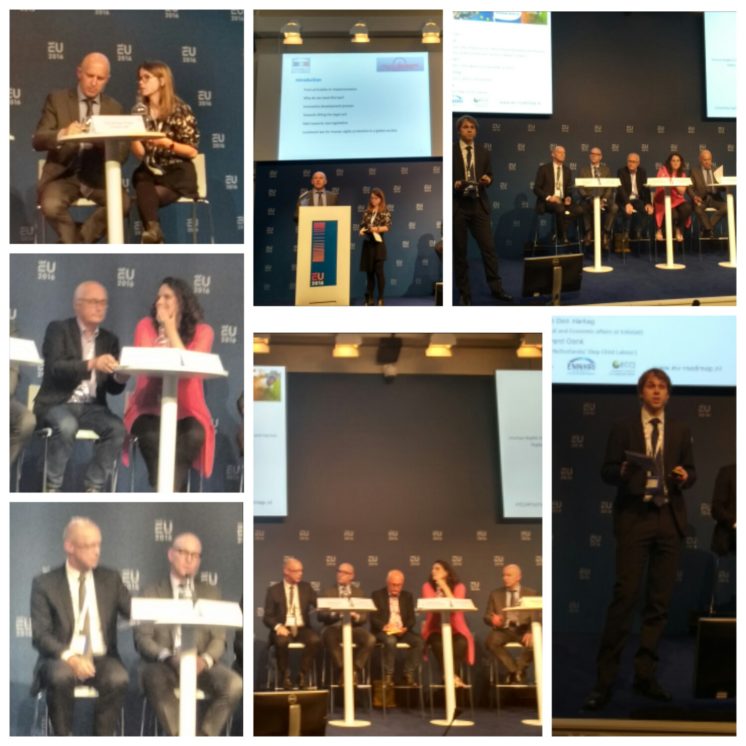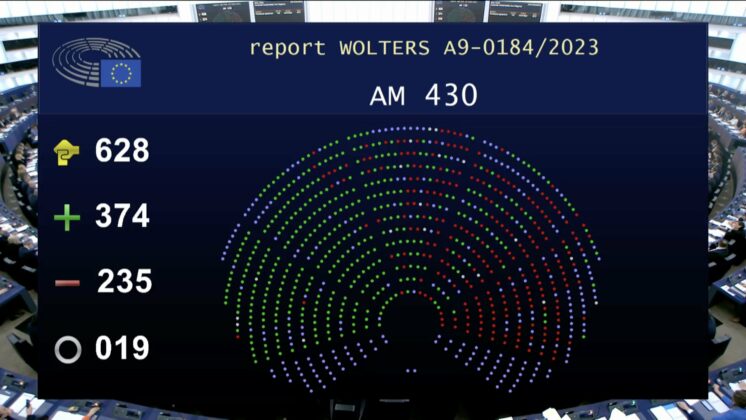The second plenary of the EU Roadmap to Business and Human Rights Conference focused on Human Rights Due Diligence and the role of States. The speaker’s panel was a mix of academics, legal experts, business and civil society representatives, and decision makers from both EU and national parliaments.
 Foto: MVO Platform
Foto: MVO PlatformThe discussions started with an overview of human rights due diligence (HRDD), both from a conceptual and an empirical standpoint. The speakers explained that governments should use the full spectrum of tools and measures at their disposal to make sure human rights are being respected by private actors both in countries of origin and throughout their company supply chains.
An important point made during the debate was that HRDD is in itself not a new concept. Governments already have due diligence frameworks in place, which include both binding and voluntary measures, and a relevant amount of empirical evidence has been collected from both states and private actors on their HRDD mechanisms.
But, as academic Mark Taylor pertinently observed, having “a law in the book” does not mean it is also enforced, and panellists recommended States to increase HRDD enforcement efforts in order to assure successful human rights protection. Mr. Taylor also added that HRDD is both about prevention and compliance, and needs to be “injected” in all areas of the state-private relationship to go a long way in improving human rights protection.
Cees van Dam, also member of the academia, took the discussions further by exploring ways HRDD contributes to better access to justice and remedy. Mr Van Dam underlined that the difficulty in establishing duty of care for parent companies can be approached through making HRDD compulsory through the creation of statutory duties. These duties would involve identifying, preventing, mitigating and ceasing human rights violations for which companies are directly or indirectly responsible.
French MP Dominique Potier stated that the legislative progress in France on the duty of vigilance bill has positive repercussions for all Europe by establishing a precedent. He further detailed that the French bill, stems from three main priority areas: acting against low cost competition, safeguarding human dignity, and improving economic and political uncertainty. The law is not a measure taken against businesses or companies, but in support ethical commerce, global human rights protection and the improvement of access to justice and remedy for victims.
MEP Richard Howitt concluded the meeting, explaining that States need to look at the full range of options at their disposal to efficiently promote HRDD. Mr Howitt highlighted that there is not one measure that states need to focus on to guarantee significant change in the field, but a multitude of measures that should be employed: from a thorough implementation of the NFR Directive, to mandatory conflict mineral regulations; from a clear outlining of binding HRDD in the up-coming EU Action Plan on business and human rights, to EU and Member States engagement in international developments in the field, like the UN binding instrument on business and human rights.




